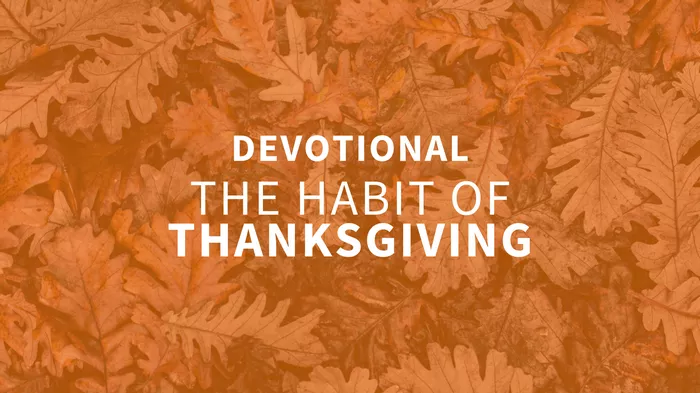Thanksgiving, a cherished holiday celebrated primarily in the United States and Canada, embodies a rich tapestry of traditions that reflect gratitude, unity, and reflection. Rooted in historical events and cultural practices, Thanksgiving serves as a time for families and communities to come together, express gratitude, and partake in various rituals. Among these traditions, the Thanksgiving devotional holds a special significance, offering a moment of spiritual reflection amid the festivities.
The Origins of Thanksgiving
To truly understand Thanksgiving traditions, it’s essential to delve into its origins. While the precise details vary, the holiday is commonly associated with the early settlers of North America, particularly the Pilgrims who arrived in Plymouth, Massachusetts, aboard the Mayflower in 1620. Facing hardships and uncertainties, the Pilgrims forged alliances with Native American tribes, including the Wampanoag, who taught them vital skills for survival in their new environment.
The first Thanksgiving, often dated to 1621, symbolizes a shared feast between the Pilgrims and the Wampanoag, celebrating a successful harvest and giving thanks for the blessings bestowed upon them. This historic gathering laid the groundwork for the Thanksgiving traditions observed today, emphasizing gratitude, community, and generosity.
The Thanksgiving Feast: A Culinary Tradition
At the heart of Thanksgiving celebrations lies the iconic Thanksgiving feast, a sumptuous spread featuring traditional dishes that evoke a sense of nostalgia and comfort. Turkey, the quintessential centerpiece, takes pride of place, accompanied by an array of side dishes such as mashed potatoes, cranberry sauce, stuffing, and green bean casserole. Pumpkin pie, with its warm spices and velvety texture, serves as the grand finale, epitomizing the essence of fall.
The Thanksgiving feast not only satisfies the palate but also fosters a sense of togetherness as family and friends gather around the table to share a meal and create lasting memories. From elaborate family recipes passed down through generations to innovative culinary twists, each dish contributes to the tapestry of Thanksgiving traditions, reflecting personal tastes and cultural influences.
Giving Thanks: Expressions of Gratitude
Beyond the culinary delights, Thanksgiving is a time for reflection and gratitude, prompting individuals to acknowledge the blessings in their lives and express appreciation for the abundance they enjoy. Traditionally, families partake in a ritual of giving thanks, either before or during the meal, where each person takes turns sharing what they are thankful for.
This practice not only cultivates a spirit of gratitude but also fosters empathy and connection as individuals listen to one another’s reflections. From health and happiness to family and friendship, the expressions of gratitude vary widely, yet they all converge to form a collective acknowledgment of life’s blessings.
The Thanksgiving Devotional: Nurturing the Spirit
Amid the hustle and bustle of Thanksgiving preparations, the Thanksgiving devotional offers a moment of tranquility and spiritual reflection. Rooted in religious traditions, the devotional provides an opportunity for individuals and families to pause and center their hearts and minds on the true meaning of Thanksgiving.
The Thanksgiving devotional typically incorporates elements of prayer, scripture readings, and hymns, creating a sacred space for contemplation and worship. Whether conducted privately or as part of a communal gathering, the devotional serves as a reminder of the divine providence that sustains and enriches our lives.
Crafting a Thanksgiving Devotional
Creating a meaningful Thanksgiving devotional requires thoughtful planning and consideration of the participants’ spiritual preferences and beliefs. While the structure may vary, certain elements can enhance the depth and significance of the devotional experience:
Opening Prayer: Begin the devotional with a heartfelt prayer, expressing gratitude for the blessings of the past year and invoking divine guidance and presence.
Scripture Readings: Select passages from sacred texts that resonate with the theme of thanksgiving and reflect on their significance. For Christians, passages from the Psalms or the Epistles offer poignant expressions of gratitude and praise.
Reflections and Testimonials: Invite participants to share personal reflections or testimonials of gratitude, recounting moments of blessing, resilience, and grace in their lives. This fosters a sense of community and encourages vulnerability and empathy.
Hymns and Songs of Praise: Incorporate hymns or worship songs that celebrate thanksgiving and praise. Singing together can uplift spirits and create a sense of unity and reverence.
Closing Prayer of Thanksgiving: Conclude the devotional with a final prayer of thanksgiving, expressing gratitude for the time of fellowship and spiritual nourishment shared.
Adapting the Devotional for All Faiths
While the Thanksgiving devotional often aligns with Christian traditions, it can be adapted to accommodate diverse religious beliefs and practices. For example, individuals of Jewish faith may incorporate readings from the Psalms or passages from the Torah that emphasize gratitude and praise. Similarly, practitioners of Islam may include prayers of thanksgiving from the Quran and reflections on the blessings of Allah.
The key is to create an inclusive and welcoming space where participants feel respected and valued, regardless of their religious affiliations. By embracing diversity and honoring the sacredness of each individual’s spiritual journey, the Thanksgiving devotional becomes a unifying force that transcends cultural and religious boundaries.
Conclusion
Thanksgiving traditions, from the festive feast to the solemn devotional, embody the essence of gratitude, unity, and reflection. Rooted in historical events and cultural practices, these traditions serve as a testament to the enduring spirit of thanksgiving that transcends time and borders.
As we gather with loved ones to celebrate Thanksgiving, may we pause to appreciate the blessings in our lives, cultivate a spirit of gratitude, and nurture our souls through moments of spiritual reflection and devotion. In doing so, we honor the legacy of Thanksgiving and carry forward its timeless traditions for generations to come.

